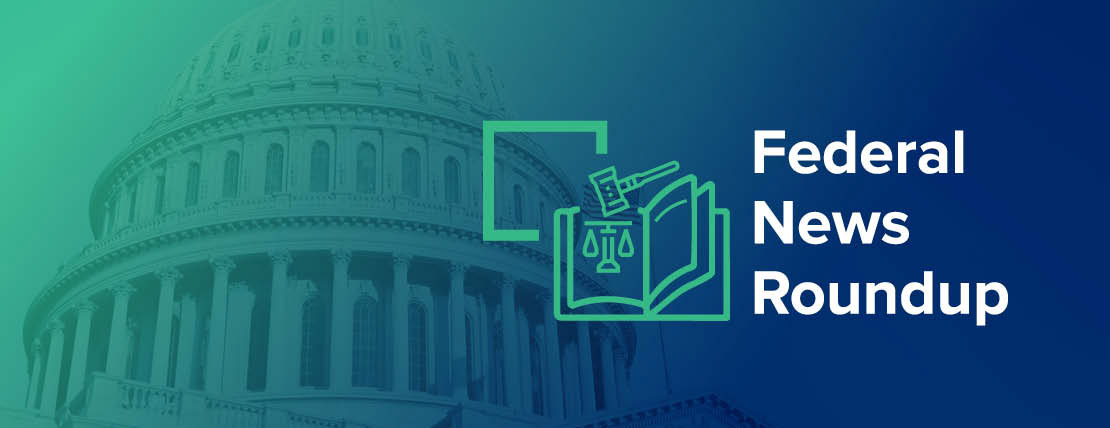- Where ‘One Big Beautiful Bill’ Currently Stands on OT, Tips, Medicaid
- Trump Nominees for DOL, EEOC Posts Advance to Final Vote
- Committee OKs Bill Limiting Fiduciary Consideration of ESG
Where ‘One Big Beautiful Bill’ Currently Stands on OT, Tips, Medicaid
The U.S. Senate on Tuesday, July 1, passed the One Big Beautiful Bill Act (H.R. 1), President Donald Trump’s budget reconciliation bill and overarching tax, social, economic and healthcare policy legislation, by a 51-50 vote. The bill currently sits with the House of Representatives, who are examining the additions, subtractions and revisions from the version it passed on May 22.
President Trump has called for the House to approve the Senate-passed version without any changes by Thursday, July 3, which could enable him to sign the legislation into law by the July 4 federal holiday.
The Senate-approved bill includes numerous components that impact total rewards and human resources professionals. Most prominent are:
- No tax on overtime. A core platform during his runup to the 2024 election, Trump has promoted this policy as a way to boost blue-collar incomes. Under the provision as it stands today, eligible individuals — nonexempt (hourly) workers (as defined by the Fair Labor Standards Act) who work beyond standard full-time working hours (as defined by the FLSA) — could deduct up to $12,500 of overtime pay from their taxable income for federal tax years 2025 through 2028, while couples filing jointly could deduct up to $25,000. The deduction cuts off for workers earning more than $150,000 individually ($300,000 as a couple). Social Security and Medicare payroll taxes on overtime income — as well as state taxes on such income — would not be eliminated. The White House projects qualifying workers could save an average of $2,000 per year. However, some financial experts, including those with the nonpartisan Tax Policy Center, argue the tax benefits wouldn’t benefit those at lower income levels (i.e., earning less than $33,000 per year).
- No tax on tips. Another key Trump election platform, the provision, as it stands today, would create a deduction for qualified tip income, eliminating federal income taxes on up to $25,000 in tips for eligible workers (as defined by the FLSA) for tax years 2025 through 2028. The tax break would start to phase out for taxpayers with modified adjusted gross income of $150,000 ($300,000 if married filing jointly); the deduction value would drop by $100 for every $1,000 of income above that amount.
- Medicaid cuts. This provision, as it stands today, would pull back many of the health coverage gains that occurred during the presidential administrations of Barack Obama and Joe Biden. The deepest healthcare spending cuts occur from a proposed Medicaid work requirement, which would eliminate coverage for those who do not meet the new employment or reporting standards (e.g., regularly filing paperwork proving they are working, volunteering or attending school, or qualify for an exemption).
What was left out of the final Senate version of the bill? There is no mention of the 14 health savings account (HSA) and health reimbursement account (HRA) changes that were part of the May 22 House package. For HSAs, that included an increased contribution limit for low-income and moderate-income workers as well as older workers, and expanding their usage to cover health club memberships and direct primary care program bills.
Trump Nominees for DOL, EEOC Posts Advance to Final Vote
The Senate’s Health, Education, Labor and Pensions (HELP) Committee voted Thursday, June 26 to advance President Trump’s nominees for leadership positions at the Department of Labor (DOL) and the Equal Employment Opportunity Commission (EEOC). Voting primarily along party lines, the 23-member committee approved the nominations of:
- Daniel Aronowitz as assistant secretary of labor for the DOL’s Employee Benefits Security Administration (EBSA)
- Andrew Rogers as administrator of the DOL’s Wage and Hour Division (WHD)
- David Keeling as assistant secretary of labor for the DOL’s Occupational Safety and Health Administration (OSHA)
- Jeremiah Workman as assistant secretary of labor for DOL’s Veterans’ Employment and Training Service (VETS)
- Jonathan Berry as DOL solicitor
- Andrea Lucas as an EEOC member
The full Senate will provide the final vote on these and other nominees at an upcoming session, the date of which has yet to be determined.
The DOL is responsible for the administration of federal laws governing occupational safety and health, wage and hour standards, unemployment benefits, and reemployment services. It also has some oversight over economic statistics. Within the department:
- EBSA protects the rights and benefits of participants in employer-sponsored retirement and health plans. It pursues this through education, compliance assistance and enforcement of the Employee Retirement Income Security Act of 1974 (ERISA).
- WHD enforces federal labor laws that aim to protect workers’ rights, particularly around compensation and benefits, and ensure fair treatment.
- OSHA pursues safe and healthful working conditions for workers by setting and enforcing standards, and by providing training, outreach, education and assistance.
- VETS provides employment resources and training opportunities for veterans, service members and their spouses, and ensures their employment rights are protected under laws like the Uniformed Services Employment and Reemployment Rights Act (USERRA).
The EEOC investigates complaints of job discrimination based on race, color, religion, sex (including pregnancy, transgender status and sexual orientation), national origin, disability, age (40 or older), or genetic information. The five-person agency has had just two members since Jan. 28, meaning it currently does not have a quorum to issue formal guidance and regulations, or rescind existing ones.
Committee OKs Bill Limiting Fiduciary Consideration of ESG
On Wednesday, June 25, the House of Representatives’ Education and Workforce Committee, by a 21-15 vote, approved the Protecting Prudent Investment of Retirement Savings Act, which seeks to amend ERISA and repeal a 2022 DOL rule under the Biden administration that allowed retirement plan fiduciaries to consider climate change and other environmental, social and governance (ESG) factors when selecting investments for plan participants.
The bill, H.R. 2988, now moves to the full House for consideration.
Under the legislation, which was introduced in April by Rep. Rick W. Allen (R-Georgia), “[Fiduciaries] may not subordinate the interests of the participants and beneficiaries in their retirement income or financial benefits under the plan to other objectives and may not sacrifice investment return or take on additional investment risk to promote non-pecuniary benefits or goals. The weight given to any pecuniary factor by a fiduciary shall reflect a prudent assessment of the impact of such factor on risk and return.”
Editor’s Note: Additional Content
For more information and resources related to this article, see the pages below, which offer quick access to all WorldatWork content on these topics:
#1 Total Rewards & Comp Newsletter
Subscribe to Workspan Weekly and always get the latest news on compensation and Total Rewards delivered directly to you. Never miss another update on the newest regulations, court decisions, state laws and trends in the field.









